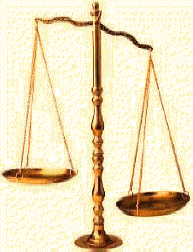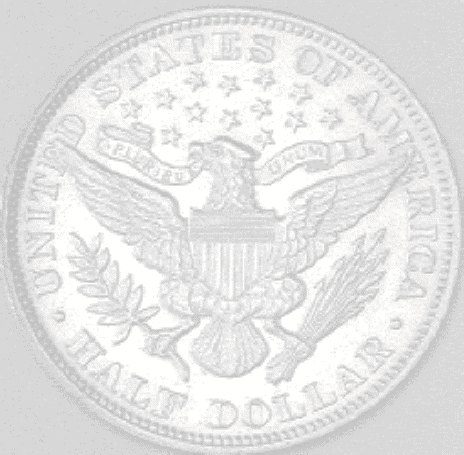
|
|
||
|
|
|
|
|
|
||

-39-
FOR BETTER OR WORSE:
CHAPTER SIX -- EARLY BANKING EXPERIMENTS
Text: "As ye would that men should do to you, do ye also to them
likewise."
(Luke 6:31)
The Land Bank
In what was known as "The Projection" of 1714, a private currency appeared in Massachusetts Bay. It was known as "Land Bank Money" and it was the first banking experiment in Massachusetts. The full title was "A Projection for Erecting A Bank of Credit in Boston, New England, Founded on Land Security “ (White, 248). While ill favored by the General Court, the scheme was very popular chiefly among
persons in difficult or involved circumstances in trade, or such as were possessed of real estates but had little or no ready money at command, or were of no substance at all (White, 250).
The General Court,
therefore, passed an Act calling for a loan of 50,000 pounds in colonial
hills of credit and rejected the Land Bank hill. The Land Bank schemers,
however, made another attempt in 1755 and again in 1741.
In order "To prevent an enormous Rhode Island
publick emission” from "depreciating" their currency (“A Letter to a
Merchant in London”, 251-54), the merchants of Boston agreed not to
receive them, but forming themselves into a company they issued 110,000
pounds in hills redeemable in silver in 1O years at the rate of 19
shillings an ounce which was then current. When the Rhode Island notes
were unable to be halted from entering Boston, silver "rose" to 27
shillings per ounce, thus provoking the hoarding of the merchants notes.
*
*It is incorrect to think the value of silver was unstable: the villain was paper "money" because God has not created paper with intrinsic value. Silver not paper is precious.
The Specie Bank
In 1740, the Boston
merchants emitted 120,000 pounds "to stifle that pernicious grand bubble
called the Land Bank." Known as "The Specie Bank" these merchants' notes
were redeemable in silver in 15 years (Sumner, 28). The Land Bank,
however, was a private currency which Massachusetts Bay sought to impose
"or force" upon its inhabitants. In 1741, the schemers sought to emit
600,000 pounds redeemable in 20 years. This sum equaled all the
provincial bills of New England and threatened to expose all paper
"money" as worthless.
The same year (1741), an anonymous pamphlet
appeared under the pseudonym "Benjamin Dolbeare" which described the
Land Bank as the "pernicious bubble" and
a late combination of a vast multitude of necessitous, Idle and extravagant persons ... (who) contract to have what they call "money" at an easy rate and to pay their debts in a precarious, fallacious kind of bills, very ill, or not at all secured, of no determined value, bearing no interest; (and which would have) proved a great prejudice to private property (White, 252-53).
Mr. “Dolbeare" continued,
...If we can suppose this Board of Bill Makers to be honest men ...they having no other check but conscience, ...as they have no exclusive patent, any other number of desperate men may follow the same money-making trade . . . . The projectors and managers of the scheme have debauched the minds of the people by instilling into them some pernicious principles destructive of all society and good government:
First, that common consent or the humor of the multitude ought to be the "Ratio Ultima" . . .
Second, that every landed man, even to the mortgaging of his last acre, has a right to make money . . .
Third, that the industrious merchants and frugal monied men are the bane of a country . . .
When the Land Bank began
to issue notes without a charter, society convulsed and the bankers
nearly sparked revolution. Governor Jonathan Belcher recommended the
General Court to suppress it, but now the Court encouraged it. Several
Justices, including Samuel Adams, Sr. resigned because they had a
concern in it.
The Bank filed a copy of its organization with the Secretary of the
Council. The Council deemed the action to be impertinent and ordered it
returned. The Governor determined to dismiss all civil and military
officers involved with the scheme. Troops resigned, and Henry Lee of
Worcester, declared it the privilege of an Englishman to give his
approval to the Bank and resigned protesting. "To sacrifice my post for
the service of my country is infinitely more honorable than to keep it
on such base condition," he declared (White, 254).
